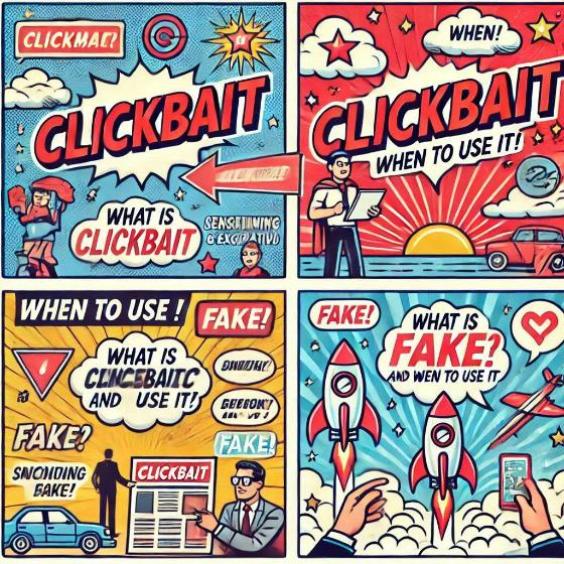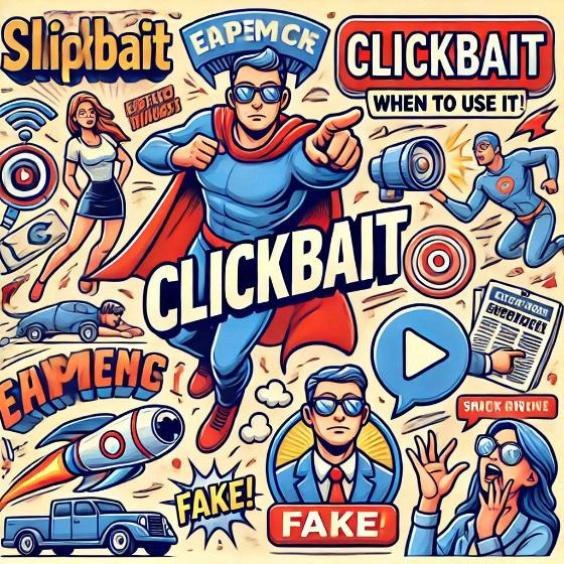What is Clickbait and when to use it
In the digital world, it is common to come across titles and content descriptions that seem too good to be true. These are known as clickbait, and their goal is to attract the user's attention and make them click on the link to read more. But what exactly is clickbait and when should it be used?

What is clickbait?
Clickbait is a term that refers to a type of content that uses misleading or exaggerated titles and descriptions to attract the user's attention and make them click on the link. These titles are often sensationalist, intriguing or even false, and their goal is to generate traffic on a website or social media platform.
Examples of clickbait
- "Discover the secret to losing 10 kilos in a week!"
- "The truth about [controversial topic] that no one wants you to know!"
- "Earn money from home with this simple trick!"
When to use clickbait

Although clickbait can be considered an unethical practice, there are times when it can be used effectively. Here are some examples:
- To attract attention in a saturated market: If you are trying to promote a product or service in a very competitive market, a clickbait title can help you stand out.
- To create interest in an unknown topic: If you are trying to promote a topic or product that is not very well known, a clickbait title can help you generate interest.
- To create a sense of urgency: If you are trying to promote a product or service that has an expiration date, a clickbait title can help you create a sense of urgency.
When not to use clickbait
Although clickbait can be effective in some cases, there are times when it should be avoided. Here are some examples:
- To deceive users: If you are trying to deceive users with a title that does not reflect the actual content, it is better not to use clickbait.
- To damage the brand's reputation: If you are trying to promote a brand or product in a way that could damage its reputation, it is better not to use clickbait.
- To violate the policies of social media platforms: If you are trying to promote content on a social media platform, it is important to read and comply with their advertising policies.
Ethical implications of clickbait
Clickbait can have ethical implications, especially if it is used to deceive users or damage the reputation of a brand. Some of the ethical implications of clickbait include:
- Loss of trust: If users feel deceived by a clickbait title, they may lose trust in the brand or product.
- Damage to reputation: If a clickbait title is considered misleading or false, it can damage the reputation of the brand or product.
- Violation of social media platform policies: If a clickbait title violates the policies of a social media platform, it can result in the suspension or deletion of the account.
In summary, clickbait can be an effective tool for attracting user attention, but it is important to use it ethically and responsibly. It is important to remember that the goal of content is to provide value to users, not deceive them or damage the reputation of a brand.





